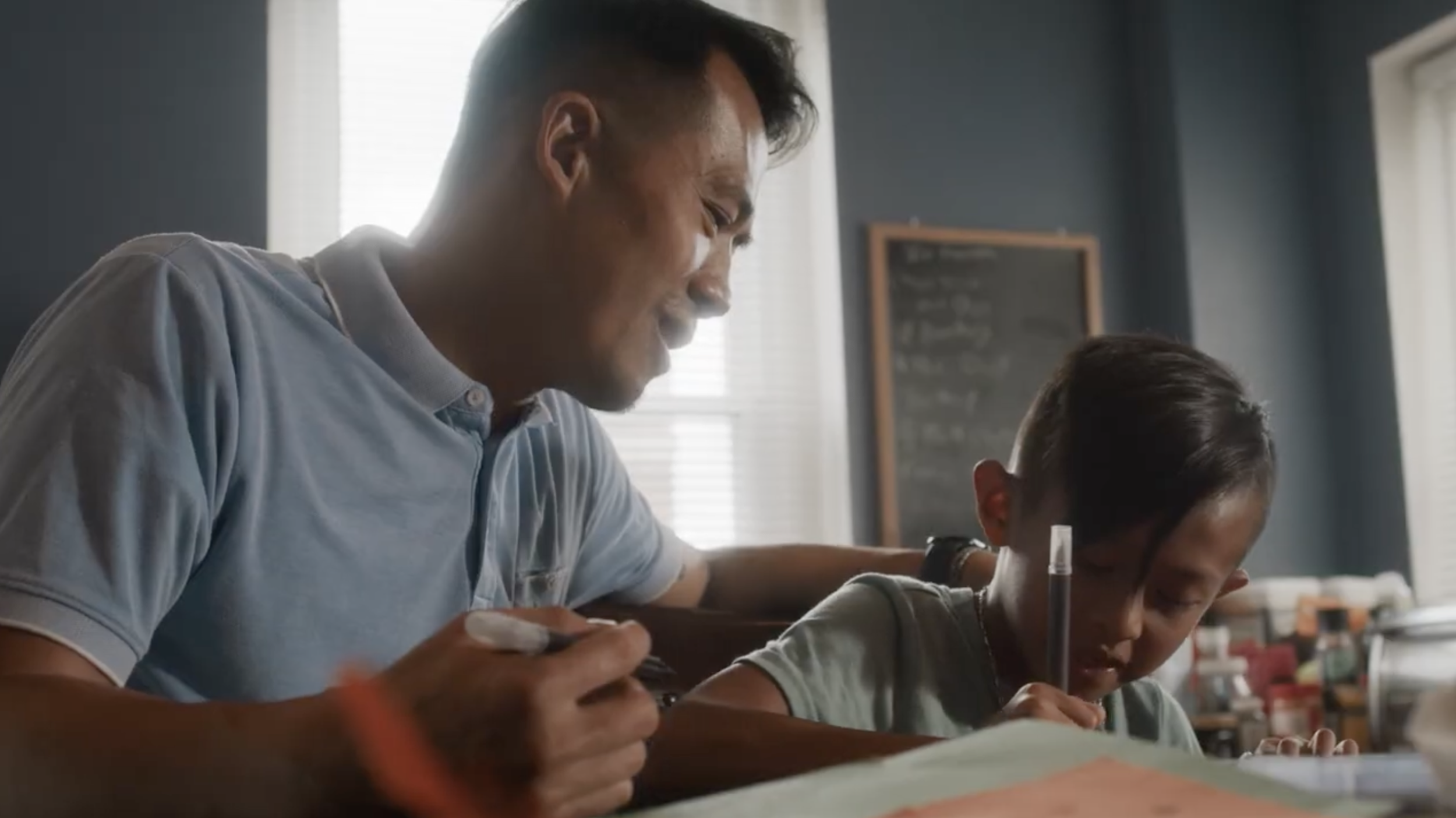Season 1 of Grown Up Dad is made possible in part with underwriting from:
Episode 2
Screen Time Challenges
Joe investigates children's screen obsession, emphasizing mental health and digital balance. Experts include Dr. Vivek Murthy, Merve Lapus, and The Dumb Dads, with stories from a Virginia family managing kids born a decade apart.
How can I watch?
All five episodes of Grown Up Dad air on public television stations across the United States and stream on PBS Passport and YouTube.
Episode Resources
Grown Up Dad Show Guides
Each episode of Grown Up Dad comes with a free downloadable Show Guide—curated to help you go deeper. Whether you’re a parent, educator, small group leader, or policy advocate, these guides offer trusted research links, relevant books, and discussion questions to spark meaningful reflection and connection.
Every guide includes:
Recommended reading and reports
Conversation starters for different age groups
Self-reflection prompts
Discussion tools for workplaces, families, and communities
Screen Time Challenges
Grounded in recent findings from the U.S. Surgeon General and Jonathan Haidt’s The Anxious Generation, this guide helps families confront the impact of screen time on emotional well-being. Use it to reflect on your own habits, talk to kids of all ages about content and addiction, and start constructive conversations with other parents about device boundaries and tech resilience.
Forthcoming: Grown Up Dad Policy Papers
Bringing story to structure. Turning conversation into change.
The Grown Up Dad Policy Papers are a new, research-backed companion to our documentary series—designed for foundations, civic leaders, researchers, and organizations working to build a more family-supportive world.
Each paper will spotlight the key systems and structural challenges raised in our episodes—from equitable paternity leave and digital media literacy to the loneliness epidemic and evolving definitions of masculinity. Rooted in original interviews, firsthand reporting, and leading data, these papers translate our storytelling into actionable insights for policy and grantmaking.
Whether you’re shaping initiatives in mental health, education, father engagement, or community infrastructure, these policy briefs will offer:
Concise recommendations aligned with emerging best practices
Highlighted frameworks from experts featured in the series
Insights for funders and institutions seeking scalable interventions
Extended Interviews
Our extended interviews feature full-length conversations with the researchers, doctors, authors, and changemakers shaping the national conversation on fatherhood—offering deeper insights you won’t see on TV.
Season 1 Episode Guide
Episode 1
Changing Role of Fatherhood
Joe explores how today’s fathers balance career responsibilities with meaningful family engagement, redefining modern fatherhood through personal narratives, expert insights, and community perspectives.
Episode 2
Screen Time Challenges
Joe examines the challenges of managing screen obsession, highlighting how caregivers and communities can help children find balance in a digital world.
Episode 3
Reclaiming Healthy Masculinity
Joe investigates how healthier ideas about masculinity can empower everyone—families, caregivers, and communities—to encourage vulnerability and emotional well-being.
Episode 4
Lost Men: Loneliness & Friendship
Joe confronts the crisis of loneliness, demonstrating how fostering meaningful connections among men benefits families, caregivers, and the wider community.
Episode 5
Digital Misinformation & Media Literacy
Joe delves into practical strategies caregivers and communities can use to protect children and empower them as informed, resilient digital citizens.
Grown Up Dad is distributed by
Grown Up Dad thanks our presenting station
How Can I Support Grown Up Dad?
Help us grow the movement.
Grown Up Dad is a 501(c)(3) nonprofit—powered by viewers, not advertisers. Your tax-deductible donation helps us tell deeper stories, reach wider audiences, and advocate for the policies families need.
Want to show your support? You can:
Make a donation to fund future episodes and outreach
Underwrite an episode as a mission-aligned foundation or brand
Wear the message with official Grown Up Dad merch
Go deeper by joining a Dad Collab group and connecting with other fathers
Every gift—large or small—helps shape a more honest, hopeful future for families.










